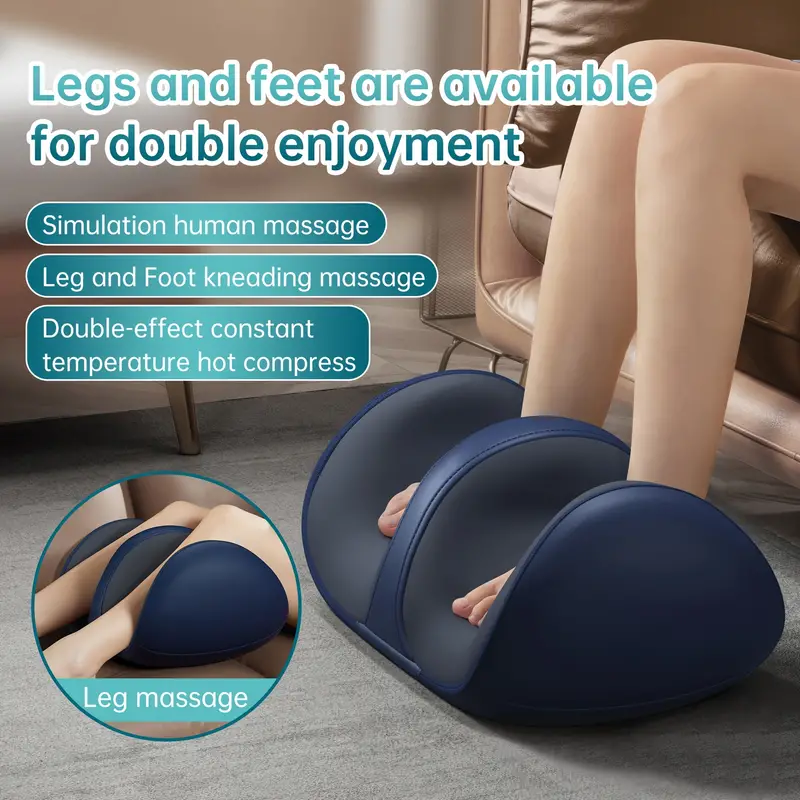Global Trends in Back Massage Equipment for B2B Suppliers
11/01/2024 Global Trends in Back Massage Equipment for B2B SuppliersSo we can draw a preliminary conclusion, Massager factory It is helpful to the needs of the industry market and social development. https://www.mihoohealth.com
The global market for massage equipment is experiencing significant growth, with a projected compound annual growth rate (CAGR) of 10.80% from 2024 to 2032, reaching a market size of USD 18.8 billion by 2032 . This growth is driven by several key factors including rising health and wellness awareness, advancements in technology, the rise of e-commerce, and an increase in disposable income, particularly in the Asia-Pacific region .
Emerging Trends and Innovations
The market is witnessing a surge in demand for electric massage equipment, which is expected to reach USD 11.4 billion by 2028, growing at a CAGR of 8.9% . This is largely due to the convenience and advanced features they offer, such as customizable massage programs, heat therapy, and Bluetooth connectivity . Innovations like smartphone control and Bluetooth connectivity are enhancing user experience and driving adoption .
E-Commerce and Online Retailing
The rise of e-commerce has been a game-changer for the massage equipment industry. Online platforms provide a wide range of products, from affordable handheld massagers to high-end massage chairs, catering to diverse customer needs . The convenience of online shopping, transparent pricing, and the ability to compare products have led to increased sales and customer satisfaction .
Health and Wellness Trends
As society becomes more health-conscious, the demand for massage equipment that can be used at home for relaxation and stress relief is on the rise. The market for back massagers, in particular, is expected to grow as more people seek solutions to muscle strain from sedentary lifestyles .
B2B Opportunities
B2B suppliers are presented with a unique opportunity to tap into this growing market. By offering a diverse range of products, leveraging digital marketing strategies, and establishing strong online presences, suppliers can reach a wider audience and increase their market share .
Challenges and Restraints
Despite the growth, the market faces challenges such as the high initial investment required for advanced models and the dependence on electricity for the operation of electric massage equipment . These factors may deter potential buyers or limit the usability of certain products.
Regional Insights
North America currently dominates the global massage equipment market, with a 45.80% share, attributed to increased health awareness and a focus on therapeutic benefits . The Asia-Pacific region, however, is expected to grow at the fastest CAGR due to rising disposable incomes and a growing middle class .
Key Players and Market Share
Leading market players include Beurer, Panasonic Corporation, LG Electronics, OSIM International, and MedMassager, among others . These companies are investing in research and development to expand their product lines and cater to the growing market demand.
Frequently Asked Questions
What is the current market size of the global massage equipment industry?
The global massage equipment market was valued at USD 7.5 billion in 2022 and is projected to grow to USD 18.8 billion by 2032 .
What is the expected CAGR of the massage equipment market from 2024 to 2032?
The market is expected to grow at a CAGR of 10.80% during the forecast period .
Which region currently dominates the massage equipment market?
North America had the largest share in the global market in 2022 .
Who are the key players in the massage equipment market?
Key players include Beurer, Panasonic Corporation, LG Electronics Inc, OSIM International Pte. Ltd., MedMassager, and others .
What are the major drivers of growth in the massage equipment market?
The major drivers of growth include rising health and wellness awareness, technological advancements, the rise of e-commerce, and an increase in disposable income, particularly in the Asia-Pacific region .